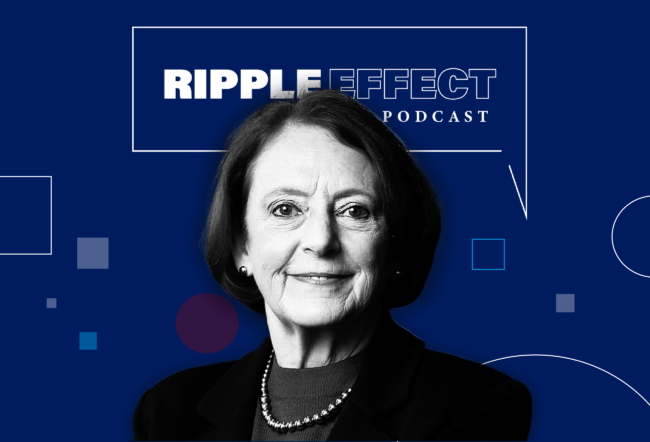When the Financial Accounting Standards Board (FASB) recently announced it may require companies to recognize the value of stock option-based compensation by expensing the value on the income statement (current regulations permit footnote disclosure in financial reports), it appeared to be ready to resolve a contentious issue. But the proposal has generated a war of words, pitting heavyweights like Alan Greenspan and Warren Buffett – who favor the expense model – against powerful opponents like SEC Commissioner Paul Atkins and Louisiana Rep. Richard Baker, chairman of the House Subcommittee on Capital Markets, Insurance and Government Sponsored Enterprises. The last FASB effort to require an options-expense treatment, back in 1994, foundered in the face of political and industry opposition that threatened the Board’s very existence. According to Wharton faculty and others however, FASB should be able to stand up to the pressure this time around.
Beginning in the 1990s, employee stock options – which generally give recipients the right to buy the related stock at a set price for a set period of time regardless of market fluctuations – appeared to be an easy path to wealth, as an estimated several thousand “Microsoft Millionaires” can testify. But critics charge that options also fueled corporate scandals like Enron Corp. and Worldcom Inc. by tempting executives to artificially pump up stock prices.
Some investors and others also argue that the underlying accounting treatment – which enabled companies to avoid expensing stock option-based compensation – is flawed because, for example, it gives some option-heavy sectors, like high-tech, a reporting edge over companies that utilize more traditional forms of compensation that are reflected on an income, or profit and loss statement (P&L).
Now a FASB Exposure Draft, Share-Based Payment, an Amendment of FASB Statements No. 123 and 95, seeks to “improve existing accounting rules and provides more complete, higher quality information for investors,” according to the Board. The comment period for the exposure draft ends June 30, and FASB plans to hold public roundtable meetings to gather additional input on the proposal.
“The Financial Accounting Standards Board wants companies to recognize the value of options used to purchase labor from employees,” observes Wharton accounting professor Wayne R. Guay. “Why should this be any different than issuing stock options for raw materials, supplies or other categories that are recognized as business expenses on the income statement when the items are used? Curiously, labor is the only item that’s not recognized.”
But not everyone agrees with that analysis. Rep. Baker, for example, recently said he was “significantly disappointed” over FASB’s plans, and planned to launch congressional moves to halt it, according to the Dow Jones Newswires service. And a January dispatch from Reuters reported that at an American Enterprise Institute think-tank conference, SEC Commissioner Atkins questioned the need to expense options, expressing concerns that the Board was moving towards the requirement for political reasons, instead of accounting ones. Atkins reportedly said, however, that he was speaking in a personal capacity, not an official one. In fact, according to published reports, Atkins’ boss, SEC Chairman William Donaldson, is in favor of expensing stock options.
Predictably perhaps, high-tech giants like Intel Corp. and Cisco Systems,, both of which have resisted calls to expense employee stock options, sounded an alarm over FASB’s proposal. In a recent proxy filing Intel urged shareholders to vote against a shareholder proposal to have the company expense the cost of all future stock options. Indeed the high-tech segment as a whole has traditionally argued that its earnings and competitive advantage could erode if the value of stock options – which have been heavily used to attract talent – were reflected on the P&L.
But even before FASB’s latest announcement, some cracks in the high-tech front were evident. Late last year for example, Microsoft modified its stock option compensation program to reward employees with actual shares of stock. At the time, some observers interpreted this as a tacit admission that management no longer expected huge run-ups in its stock price – and in fact Microsoft stock has declined from a peak of about $30 in late 2003 to about $25 in mid-April 2004. In addition, the company announced its intention to expense all equity-based compensation, including previously granted stock options. Another tech-based company, the online DVD rental service Netflix, also announced last year that it would expense options. Published reports quoted CFO Barry McCarthy as observing that the move gave the company “greater consistency” in its financial reporting.
FASB’s new proposal has the support of the “Big Four” CPA firms. In a joint letter dated March 17, addressed to Rep. Baker and to Rep. Paul E. Kanjorski (the ranking member of Baker’s subcommittee), the titans of the accounting industry framed their arguments in the context of a need for FASB’s continued independence. “We continue to support the view that the fair value of all employee stock options should be reported as compensation expense,” reads part of the letter, which is signed by the Big Four chairmen and CEOs. It goes on to urge Congress to continue its recognition of the “critical contribution of an independent FASB to the effective operation of the capital markets.”
Politics aside, high-tech companies have also expressed fears that a sudden shift to option-expensing could lead to precipitous plunges in their P&Ls, potentially triggering crippling declines in their stock prices – the very tool that they have used to attract and retain talent. But Wharton’s Guay dismissed those concerns, and a pair of high-profile studies appears to support his position.
“Stock options represent a compensation tool and if they are effective, one would expect companies to continue to use them, regardless of the reporting mechanism,” he argues. “Also, the dollar amount of option expense is generally disclosed in footnote format already, so institutional investors and others know it, and analysts already consider it. Several hundred firms are already expensing their options, and their stock prices do not appear to have suffered from the approach.”
A similar conclusion was reached by the Congressional Budget Office, which recently released a study of the potential effects of expensing stock options. Titled “Accounting for Employee Stock Options” and dated April 2004, the report notes, among other conclusions, that if companies “do not recognize as an expense the fair value of employee stock options, measured when the options are granted, the firms’ reported net income will be overstated.”
Further, while acknowledging the complexity involved in calculating the fair value of employee stock options, the CBO says that they “may be estimated as reliably as many other expenses.” Under the FASB proposal, the expense of a stock-option award would generally be measured at fair value at the grant date. While the Board does not specifically say how the options are to be valued, the proposal does mention two permissible methods: the widely used Black-Scholes-Merton formula and a lesser-known binomial model.
Finally, adds the study, recognizing the fair value of employee stock options as an expense on a company’s reports isn’t likely to negatively affect the national economy, since the information has already been disclosed in footnotes. However, notes the report, it “could make fair value information more transparent to less-sophisticated investors.”
Another study, focusing on 335 companies, was conducted by the global professional services firm Towers Perrin. It too determined that companies are not penalized when their stock options are expensed. “Once adjusted for general market movement, the average stock price of announcing companies does not show any significant change during the 300 trading days surrounding the declaration,” according to the report, which was released on March 31.
“What we can learn from this study is that accounting treatment needn’t drive management incentives,” says Gary Locke, a Towers Perrin principal and leader of the firm’s executive compensation consulting practice. “Rather, incentives should be designed to drive corporate performance.”
Guay adds that FASB’s global counterpart, the London-based International Accounting Standards Board, has already issued a standard requiring companies to reflect, in their income statement, the effect of stock options. “If special interests try to pressure the SEC or FASB, those bodies can always reply that this is the direction in which the rest of the world is moving,” he says. “We need to move along with other countries in this effort.”
In fact, he adds, the task of developing standard metrics to accurately value stock options may not be all that daunting. “Valuation issues will be important, but remember that financial markets already value certain types of stock options (typically puts and calls, which give an owner the right, but not the obligation, to respectively sell or buy a specified amount of an underlying security at a specified price within a specified time),” he observes. “The trick here is that these compensation-related stock options are not the same as publicly traded options, so vesting and other unique features could make the job a bit tougher. But so are other valuations, like pensions, which require estimates of how long employees will work at a company, and how long they will live. The value assigned to stock options may not be perfect, but it will be reasonable. And since the current P&L valuation of stock-option expense is zero, any kind of value is better.”



